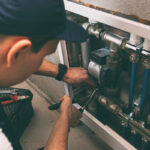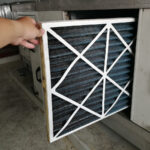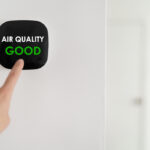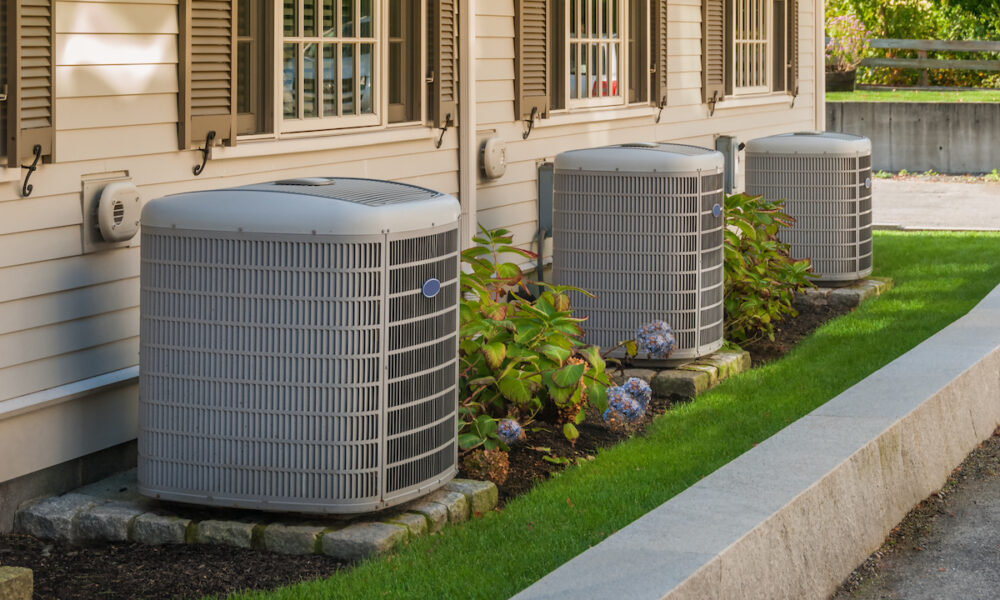
Throughout the year, there are plenty of causes for stress on a heating and cooling system. These stressors can damage your system and create the need for regular inspections, cleaning, and maintenance. But the key is to catch these issues before they become larger problems.
At Veterans AC & Heat Inc. we highly recommend you perform preventative maintenance on your heating and cooling system. Preventative maintenance is essential for efficient and well-running heating and cooling systems.
Throughout this article, we’ll explain the importance of preventative maintenance, the common stressors on heating and cooling systems, and eight preventative maintenance tips to keep your heating and cooling system running efficiently!
Importance of Preventative Maintenance for Heating and Cooling Systems
You may be wondering – why is preventative maintenance for heating and cooling systems so important?
The answer is simple. Preventative maintenance for heating and cooling systems is important because it ensures the system is running efficiently and it reduces the risk of breakdowns.
Regular inspections, cleaning, and maintenance can help detect problems early and prevent costly repairs. You’ll also want to keep the air filters clean, check for leaks, and check refrigerant levels as these are all important steps to ensure your heating and cooling system runs efficiently.
Additionally, and arguably the most important aspect of preventative maintenance, is regular service from a qualified technician. They will identify potential issues and keep your system running smoothly.
Overall, with proper preventative maintenance for your heating and cooling system, you can save time and money.

Causes of Stress on Heating and Cooling Systems
There are six common causes of stress on heating and cooling systems. Most of these can be avoided with proper maintenance, but it’s important to acknowledge them so you can keep watch over your systems.
1. Lack of Regular Maintenance
Lack of regular maintenance is one of the main causes of stress on heating and cooling systems. When these systems are not properly maintained, they experience stress, which can lead to breakdowns.
2. Dirty Filters
Dirty air filters are another major cause of stress on heating and cooling systems. When air filters become clogged, the system has to work harder to pull air through the filter. This can result in higher energy costs and lead to potential breakdowns.
3. Leaks
Leaks can also cause stress on heating and cooling systems. When there is a leak, your system is forced to work harder. This extra work by your system leads to higher energy costs and, again, potential breakdowns.
4. Improperly Sized Systems
The improper size can be a huge stressor for heating and cooling systems.
When a system is too big for the space, you’ll notice an uncomfortable temperature and uneven heating and cooling, meaning you may find spots in the space that are cooler than others. Additionally, heating and cooling systems dehumidify the air when they are in cooling mode. However, if the system doesn’t run long enough, it bypasses this process creating a more humid space.
When a system is too small for the space, it has to run more often to keep up. Since it is working harder, it’s more likely to break down.
5. Wear and Tear
General wear and tear on a heating and cooling system is one of, if not the, most common causes of stress.
The average lifespan of a heating and cooling system is 10-15 years. However, this can vary depending on a number of factors including:
- The type of system
- The amount of regular maintenance performed
- The environment the system is in
If your system is more than 10 years old and is starting to show signs of stress, it may be time to consider a replacement.
6. Incorrect Thermostat Settings
Another stressor you have to watch out for is incorrect thermostat settings. If your thermostat setting is incorrect, it can cause your heating and cooling system to work harder than it should. Overworking the system leads to higher energy costs and the risk of breakdown.
8 Tips for Heating and Cooling Preventative Maintenance
Now that we’ve looked at some common stressors on heating and cooling systems, it’s time to dive into some of our best tips for heating and cooling Preventative maintenance.
As you read, keep in mind that the team at Veterans AC & Heat Inc. has three residential preventative maintenance plans to tune up your heating and cooling systems:
- Standard Maintenance Package
- Gold Maintenance Package
- Platinum Maintenance Package
Each package includes a variety of preventive maintenance tasks to ensure your system is running efficiently.
Reach out to us if you have any questions throughout the remainder of the blog!
Tip 1: Understand Your System
Before you move any further and complete any maintenance on your heating and cooling system, it’s important to know what kind of system you have.
The most common types of heating and cooling systems are:
- Central air conditioning systems
- Heat pumps
- Furnaces
- Ductless mini-split systems
They each have specific maintenance needs, so be sure to contact a professional before cleaning and maintaining your system.
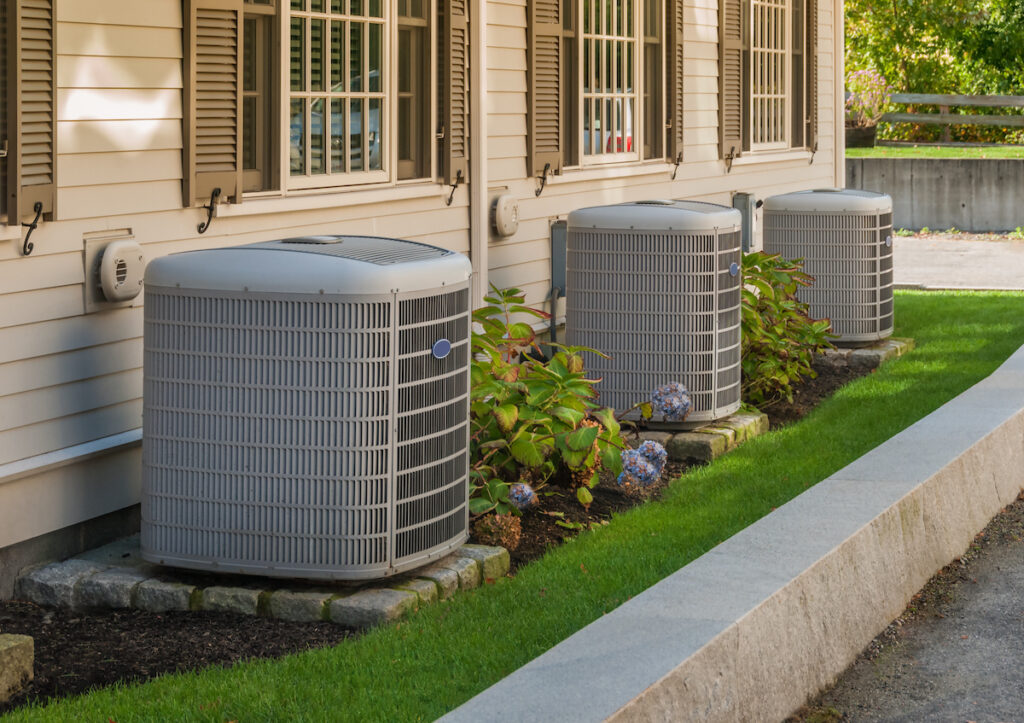
Tip 2: Conduct Regular Inspections
Regular inspections are an important part of preventative maintenance for heating and cooling systems.
Scheduling regular inspections with a qualified technician can help identify potential problems before they become major issues.
During an inspection, the technician will check the system for any signs of wear and tear or other potential problems. They’ll also check for proper refrigerant levels, leaks, and any other issues that could interfere with the efficiency of the system or cause it to break down.
Veterans AC & Heat Inc., we recommend scheduling inspections at least once a year.
Tip 3: Cleaning and Perform Regular Maintenance
Regular cleaning of your heating and cooling system is essential.
There are fours areas you’ll want to clean to ensure your system is running efficiently and reduce the risk of breakdowns:
- Your outdoor A/C unit
- Your heating and cooling filters (we’ll cover this in the next section)
- Your air ducts
- Your vents and registers
Maintenance checks should be performed at least once a year to ensure the system is working properly. During these checks, you should:
- Check refrigerant levels
- Inspect the system for potential problems
- Make sure the thermostat is set correctly
Tip 4: Change Filters Regularly
Air filters should be checked and changed regularly to ensure good air quality and efficiency.
The frequency of how often you need to change your air filters will depend on the type of filter your system is using and the environment. For example, if you have pets or live in a dusty area, you may need to change your filter more often.
There are a variety of filters, including:
- Disposable
- Pleated
- Washable
It is important to choose the right type of filter for your system to ensure it is running efficiently and to reduce energy costs.
Consult with a professional to determine which filter you should be using and how often your filter should be changed.
Tip 5: Check for Leaks
It is important to check for leaks in your heating and cooling system to ensure all parts are working properly.
Signs of leaks include:
- Unusual sounds coming from the system
- Higher than usual energy bills
- Insufficient cooling or heating
If you notice any of these, take action right away. Have a qualified technician inspect the system to identify the source of the leak and take the necessary steps to repair it.
Taking action quickly reduces the risk of further damage.
Tip 6: Check the Refrigerant Levels
Accurate refrigerant levels are essential for a healthy heating and cooling system. Low levels can cause the system to work harder, resulting in higher energy costs.
Signs of low refrigerant levels include:
- A loss of cooling power
- Strange noises
- Ice forming on the coils
If you notice any of these signs, call a professional right away. They will pinpoint the source of the problem and quickly make the repair.
Tip 7: Check the Thermostat Settings
Another preventative maintenance tip is to check the thermostat settings to make sure they are set correctly.
Setting the thermostat too low can cause the system to work harder than necessary, boosting your energy bill. Setting the thermostat too high can cause the system to run inefficiently, which will also raise your energy bill.
A quick tip to keeping your thermostat on track is to make sure it is located away from heat sources, like lamps and windows. This will ensure a more accurate and consistent temperature reading.
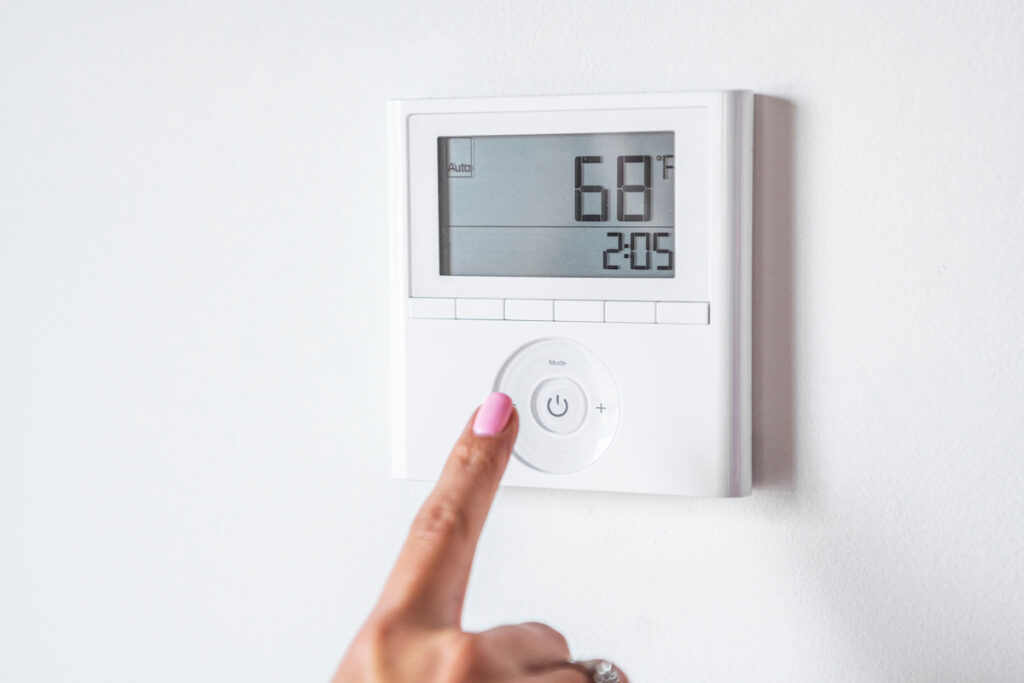
Tip 8: Schedule Regular Service with the Professionals at Veterans AC & Heat Inc.
Regular service from a qualified technician is an essential piece to preventative maintenance for heating and cooling systems.
Professional technicians will identify potential problems before they become major issues and keep the system running smoothly.
During a service appointment, the technician will inspect the system for any signs of wear and tear or potential problems. They will also check for proper refrigerant levels, leaks, and any other issues that could interrupt the system from working properly.
As previously mentioned, we recommend scheduling regular service appointments to ensure efficiency and reduce the risk of breakdowns.
Our Residential Preventative Maintenance Plans are agreements between you and Veterans AC & Heat Inc. for the purpose of providing preventative maintenance on your heating and air conditioning system. We agree to perform inspection and maintenance services as specified in the cooling and heating checklists, which can be found here.
Don’t let a carefree attitude cost you time and money! Contact us today to schedule regular heating and cooling preventative maintenance!

